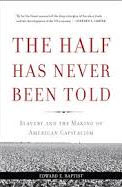A debate that sometimes flares into violence now rages in the
United States over Confederate monuments and statues. The deaths of African
American men and women in police custody like George Floyd and Breonna Taylor
have provided new urgency to an already invigorated movement for removing such
monuments and statutes from city streets, government buildings, and college
campuses. We stand squarely with those who would destroy or relegate such structures
to museums or other places that can put them into proper historical context.
We acknowledge an arguable distinction between monuments
honoring Confederate officials and military officers and symbols of the
Confederacy on one hand and those recognizing founding fathers of the nation
who enslaved people, but did not rebel against the United States. Monuments honoring Thomas Jefferson and
George Washington require a different conversation and we defer that to another
day. We concern ourselves now with people who took up arms against the country.
We fear supporters of keeping Confederate monuments prefer
forgetting inconvenient truths about what those monuments represent. Today we
remind them.
It was About Slavery
The War Between the States, as supporters of the Lost Cause
like calling it, was fought about one thing: The South’s desire to preserve
slavery and expand it into the western territories. In the early 1800s, as
Americans marched westward and new states sought admission into the Union, the
South realized it had a problem. If those territories entered as free states,
soon the South would find itself out gunned in Congress. The number of representatives
and most importantly, senators, from free states would outnumber those from slave-holding states. The South would lose its hold on power in the national
government. The South couldn’t have that, since it risked the end of slavery.
Too many Americans have forgotten (or
never knew) two things about slavery -- how brutal it was and how important it
was economically. When we
wrote recently about the movement that would make Juneteenth a national holiday,
we identified museums that tell the story of slavery’s horrors. We’ve noted
before how
Professor Edward
Baptist’s book The Half Has Never Been Told: Slavery and
the Making of American Capitalism provides a thorough understanding of both
slavery’s brutality and its economic dimensions. The book describes in chilling
detail murders, rapes, and physical abuse that went along with slavery and
explains the relationship between the peculiar institution and development of
the United States as a world commercial power. It will disabuse any reader of the
notion the Civil War
(its proper name) was about anything else.
The Monuments and Jim
Crow
Advocates of keeping Confederate
monuments glossed over when most were
erected. It wasn’t immediately after
the Civil War when supporters of the Lost
Cause might have focused on memorializing their heroes. Only a few went up
in those years. In fact, many monuments went up after reconstruction as part of
an organized campaign against recently freed enslaved persons that promoted Jim Crow segregation and,
later, resistance to the civil
rights movement.
Richmond, Virginia, for example,
installed a statue of Confederate President Jefferson
Davis on its famous Monument Avenue in
1907. The statue of Robert
E. Lee removed in 2017 from a street in New Orleans went up in 1884. The Lee
statute in Charlottesville, Virginia that sparked violence in 2017 was
installed in 1924. South Carolina began flying the Confederate battle flag
above its state capitol in 1962, as a protest against school desegregation. USA
Today reported thirty-five Confederate monuments erected in North
Carolina after 2000.
These historical facts suggest erecting
monuments to Confederate leaders had more to do with intimidating blacks and
the civil
rights community than with preserving “heritage” as monument
supporters so piously claim. Students of history know context means everything.
Context in this instance speaks volumes about the message the monuments were
established to send.
Hitler?
Yes, Adolf
Hitler. Frankly, we’ve been surprised many people appear hesitant about comparing
the memorializing of confederates who fought against the United States with German and Japanese leaders during the Second World War. Well, we’re not. We’re not because we don’t see a distinction. No American city or university would erect a statue of Hitler. The United States military wouldn’t name a base after Erwin Rommel, the general who
commanded German forces resisting the D-Day invasion at Normandy. How about a monument honoring Japanese Admiral Yamamoto, mastermind of the attack on Pearl Harbor?
the memorializing of confederates who fought against the United States with German and Japanese leaders during the Second World War. Well, we’re not. We’re not because we don’t see a distinction. No American city or university would erect a statue of Hitler. The United States military wouldn’t name a base after Erwin Rommel, the general who
commanded German forces resisting the D-Day invasion at Normandy. How about a monument honoring Japanese Admiral Yamamoto, mastermind of the attack on Pearl Harbor?
Yet, statues in cities and on college campuses and the names
of military bases honor defeated, treasonous Confederate officers. Lee, Stonewall
Jackson, Braxton
Bragg, and other Confederate
battle commanders fought as hard against the United States as Rommel and Yamamoto.
Davis sought destruction of the United States just as Hitler and Japanese Emperor
Hirohito
did. A distinction is artificial and intellectually dishonest.
If we have made harsh pronouncements
on
this issue, so be it. Some principles require expression with moral clarity
and certainty, unadulterated by diplomatic or cultural nicety. For us, this is
such an issue.
We stand by our assessment. None the less, we remain interested
in contrary views. We’ve stated ours, so let us hear from you about yours.

























